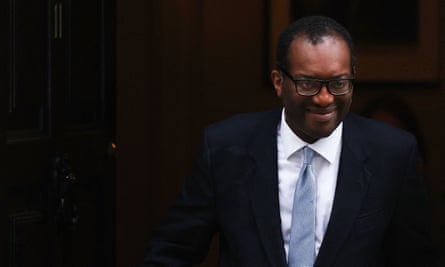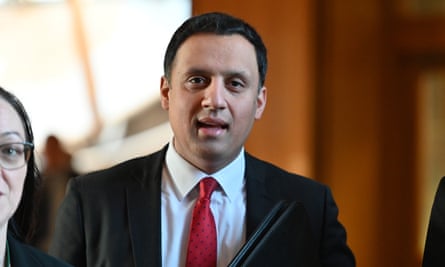Senior Labour figures have been left annoyed and perplexed by Rachel Reeves’s surprise announcement that the party will not reinstate a cap on bankers’ bonuses if it wins the next election.
The shadow chancellor said on Wednesday that she had “no intention” of bringing back the cap, introduced after the 2008 financial crisis to limit annual payouts to twice a banker’s salary, saying she wanted to be the “champion” of a thriving financial services industry.
But her shift in position has frustrated some of her colleagues. One shadow cabinet minister said: “We’ve spent the last year and a bit saying what a terrible decision it was for the Tories to scrap the cap in the middle of a cost of living crisis. What has changed?”
Another source said: “I’m just not sure what the point of this is. It will be really unpopular with exactly the sort of voters we need to win over, including in the ‘red wall’.”

A third added: “We’ve given quite a bit of reassurance already to businesses. I don’t really understand the nervousness around this one.”
In 2022, the then chancellor, Kwasi Kwarteng, announced that he would be removing the rule as part of his now infamous mini-budget during Liz Truss’s short tenure as prime minister. It was one of the few of Truss’s policies to be kept under Rishi Sunak’s leadership, with the new rules coming into force in October last year.
The move received widespread criticism for rewarding bankers and failing to address cost-of-living concerns affecting households across the UK. However, Reeves’s decision to continue allowing unlimited payouts to bankers is a significant shift for Labour.
In an interview with the BBC, Reeves, a former Bank of England economist, said: “The cap on bankers’ bonuses was brought in in the aftermath of the global financial crisis and that was the right thing to do to rebuild the public finances.
“But that has gone now and we don’t have any intention of bringing that back. And as chancellor of the exchequer, I would want to be a champion of a successful and thriving financial services industry in the UK.”
Labour has previously criticised the Conservatives for removing the cap, saying it was “out of touch” with the British public. Just three months ago, after the lifting of the cap, Reeves criticised the move “in the midst of their cost of living crisis”. She added: “It tells you everything you need to know about this government.”
One senior union source described Reeves’s decision as the “wrong call that risks misreading the mood of the country”.
Speaking to reporters in Westminster, Labour’s leader in Scotland, Anas Sarwar, said he stood by his earlier criticism of the decision to remove the bonus cap, but also avoided any direct criticism of Reeves and her decision.
“We absolutely also believe in fairness, and so we were right to oppose the lifting of the cap on bankers’ bonuses at the time. I said it was a further demonstration of an economically illiterate, morally bankrupt Tory party,” he said. “I’m not going to shift my view on that. But you’ve got to look at the balance.”
This involved, he said, creating confidence for banks to invest while also “making sure that we never return to a situation where bankers behave inappropriately, and risk the wider economy, like we saw with the financial crash”.
after newsletter promotion

A Labour spokesperson defended the move, rejecting claims the party had U-turned or misled the public on its position. “We said at the time we didn’t think it was a priority. The decision was taken by the government and we don’t have any plans to bring it back.”
She said Labour wanted to offer businesses “stability, certainty and a clear path forward”. Other Labour insiders said Labour was already planning a windfall tax on oil and gas companies, abolishing non-dom tax status and bringing in VAT on school fees.
One said: “When it comes to the politics of this, these are the fights we think we can have with the Conservatives and win with the public. Everybody in the shadow cabinet and beyond knows that Rachel’s priority is demonstrating that Labour is as pro-worker as it is pro-business.”
Momentum, a grassroots organisation of the party’s left wing, said: “This is a terrible decision totally out of touch with Labour’s values and public opinion. For over 40 years our economic model has sucked wealth from the country and enriched a few in the City. It even crashed the economy in 2008. Yet instead of learning the lessons from New Labour’s failures, Starmer and Reeves seem determined to repeat them.”
Labour said on Tuesday that it planned to cut swathes of red tape in the financial services sector, while “unashamedly championing” the industry. In a 24-page document, seen by the Guardian, Labour has promised to cut 10,000 pages of regulations and ruled out a windfall tax on bank profits.
The party will formally announce its plans to harness the strengths of the financial sector to City bosses at its business conference in London on Thursday.